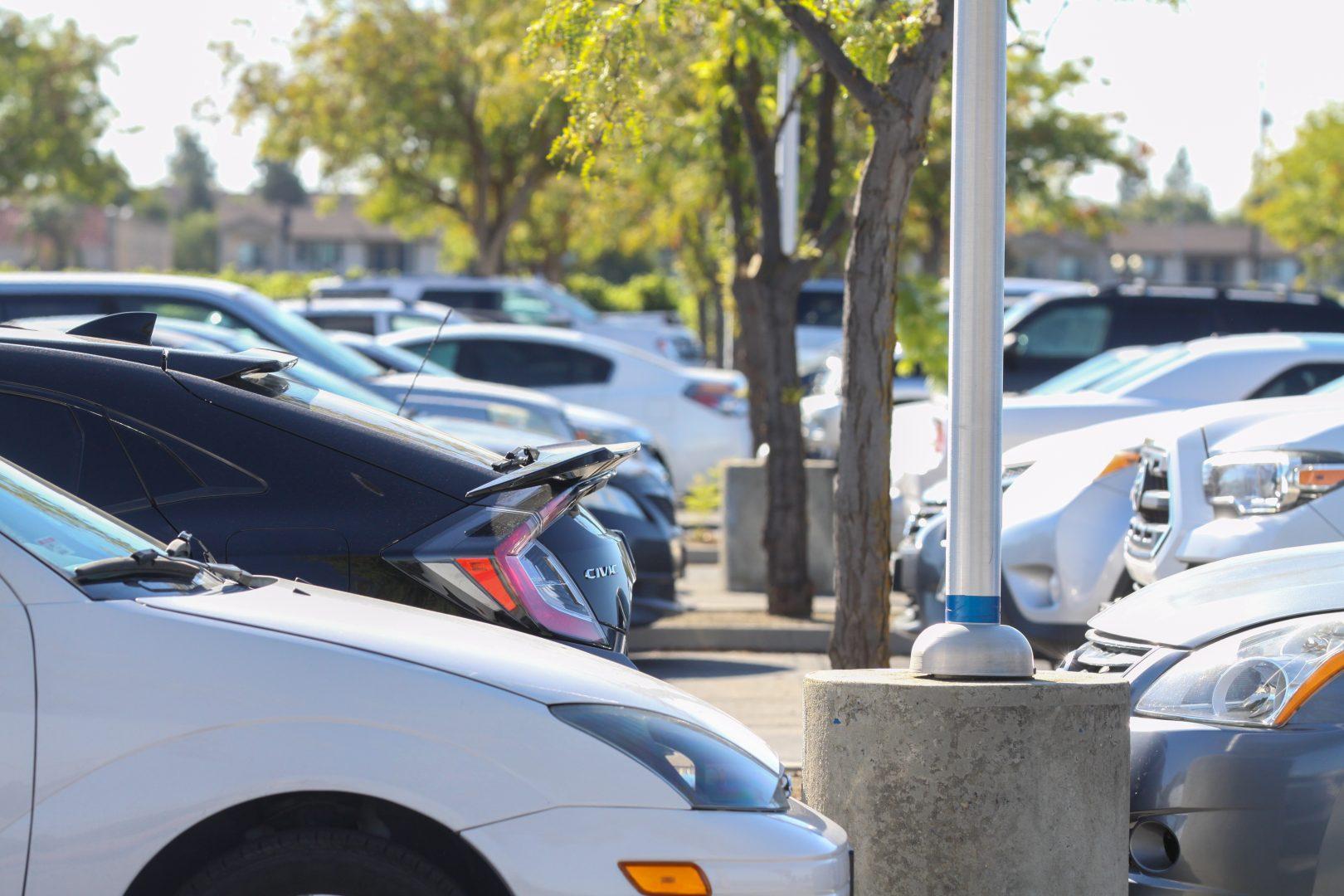Fresno State is well-known as a commuter school, with many students driving to campus from Madera, Kings and even Kern counties. Students from non-Fresno County areas made up 44% of last year’s fall semester student population, amounting to 10,893 Fresno State students.
Out of that group, one of the highest rates of students enrolled were from Tulare County, reaching 13%.
My hometown of Visalia is within Tulare County, and as a student who drives a round-trip of over 100 miles Monday through Friday to get from there to Fresno State, I think the university needs to embrace its identity as a commuter school.
Fresno State and the California State University system need to do more to help student commuters.
The university needs to provide, or at least advocate for, additional funding for transportation and programs to aid students who live farther away. Whether it be creating more programs like the V-line for other counties, or returning previous programs like the Bulldog Express for local students with no other means of transportation, more needs to be done.
Most important, students need more financial aid to pay for gas to drive these long distances so they can focus on school rather than gas prices.
Financial aid is already determined on various factors like family income or household size on a sliding scale. Why not also consider how far away a Fresno State student lives from the campus?
It’s not my fault or any other commuters’ fault for living farther away from the university, and with a campus theme that focuses on inclusivity, Fresno State should have to accommodate, not the other way around.
This is one of the reasons Fresno State can’t rely solely on financial aid, like Pell Grants, as a solution to this problem.
Now in my final year as a Bulldog, I’ve spoken to many students in my shoes who intended to eventually move to Fresno to make the commute easier.
But like many of those in my situation, plans change.
There’s reasonable things no one can control, like the worldwide pandemic that sent my first year of college online, which removed any chance of living in Fresno at the time.
Once COVID-19 restrictions were lifted and I was able to return to in-person classes, I adapted to driving to school every day.
But how are students who commute supposed to adapt again when they have to pay $100 a week for gas?
That’s how much I pay for gas in an average week. Since October, everyone in the Central Valley has been paying an average of over $6 per gallon, according to the AAA Gas Prices website.
Yes, I’m grateful for how affordable the university already is as a Pell Grant recipient, but I’ve also paid for family medical bills, increasing rent and, most recently, raising gas prices.
Cars break down, tires go flat and if you drive on Highway 99 you know accidents happen all the time. Adding gas prices into the mix leaves students with no financial cushion to pay for when accidents do occur.
For those wondering why moving to Fresno is harder financially than choosing the commuter lifestyle, student dorms are over $4,000 per academic year, according to the 2022-23 rates. When it comes to off-campus student housing, costs begin at $540 per month at places like Avery, according to its website. The median cost of renting an apartment in Fresno is $1,400, according to The Fresno Bee.
On top of those fees, many students have family obligations or other factors keeping them home, such as elderly relatives, kids or dependents who require medical attention.
My mother is currently unable to work and my eldest sibling, 29, has a mental disability that makes it impossible for him to work altogether. My sister, 27, and I, 21, are both commuter students at Fresno State and can’t move away from home because we’ve taken a big role helping out financially.
Due to changing work schedules and night classes, we can’t utilize transportation like the V-Line, which is a partnered program with the city of Visalia and Fresno State. Plus, if an emergency occurs, we can’t wait one to two hours for the next bus to arrive and then ride an additional 1 hour, 30 minutes to get home.
Gov. Gavin Newsom said he will work with state legislatures to tax oil companies to pay back California residents through rebates due to the increasing gas prices, according to NPR. As COVID-19 showed us, stimulus checks are crucial for those who need financial help, so there needs to be more aid based on inflation.
But students have had this problem before gas prices went up.
As a commuter myself, I’d rather spend tuition to make transportation easier than pay increasing rates for a new student union that I can barely visit due to my limited time on campus.
I’m graduating next semester and I consider myself proud to be a Bulldog. Reflecting on the times I’d leave for school at 4 a.m. and not drive back until midnight, I can see that it was a serious hustle getting to school every day.
For me, Fresno State was worth it. I was able to tough it out and I had a good time on campus.
But that doesn’t mean those currently in my situation, or future students who have to commute, should have to go through the same difficulties I went through. Fresno State needs to help students going through what I went through if it really wants to consider itself a commuter school.




